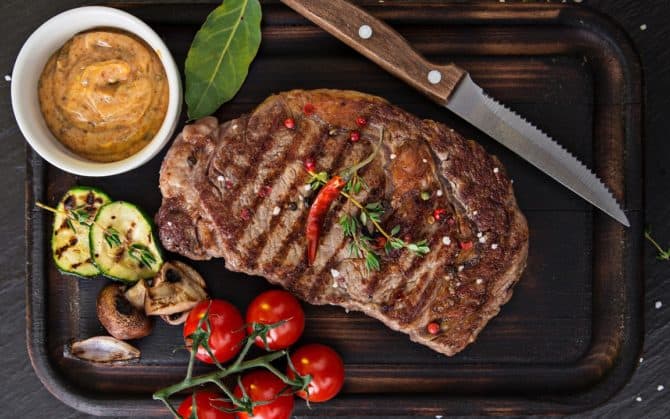Are you going to wash steak?
A common mistake that consumers make in the kitchen is to wash or rinse meat or poultry before cooking. However, it is not recommended to wash raw poultry, beef, pork, lamb or veal before cooking. Bacteria in raw meat and poultry juice can spread to other foods, utensils and surfaces.
How do you clean a steak properly?
Ewww. All bacteria that lurk in the meat when they come out of the package die during cooking. Unfortunately, you can not say the same about your sink, dishes, utensils or cutting board, all of which must be washed with warm soapy water, rinsed and then air-dried or paper towel after contact. With me no.
Should I rinse meat before cooking?
Do not wash raw meat, poultry, fish or shellfish before cooking, as the water used for washing can spray and spread bacteria from the meat to other foods, hands, clothes, work surfaces and kitchen utensils. Some bacteria could not be removed from meat or poultry even if they were washed several times.
Can you dip the steak in water?
When it comes to tenderizing, the water-deep bath makes the meat softer, but at the expense of reducing the taste. There are many other alternatives to tenderizing meat.
How many minutes do you cook a steak?
Put steaks on the grill and cook them until golden and slightly charred, 4 to 5 minutes. Turn the steaks and continue grilling for 3 to 5 minutes for rare (an internal temperature of 135 degrees F), 5-7 minutes for medium (140 degrees F) or 8 to 10 minutes for medium well (150 degrees F))
Is it bad to wash meat?
Summary. It is never a good idea to wash meat and poultry. Whether it happens before cooking, freezing or marinating, washing can cause cross-contamination. Cross-contamination occurs when bacteria spread from meat to other areas such as hands and cooking surfaces.
What do you put in the steak?
Cover both sides of the steak and the sides with salt and freshly ground black pepper so that a visible layer of spices is present on all surfaces. The salt should not accumulate but should cover the meat. Steak consists mainly of wearing a t-shirt of salt and pepper. A tight sweater.
Do you rinse the steak after salting it?
Clean. When the rest period is over, wash both sides of the steak under running water to remove salt. During rinsing, the surface of the meat is rubbed lightly and gently and stretched to remove most of the outer salt. You must rinse thoroughly, otherwise the meat tastes very salty
How do you get blood from meat before cooking?
Blood will run out of meat in the salting process to make it kosher. Before washing the meat, cut off the blood clots. Soak the meat at room temperature for at least half an hour. Meat soaked for 24 hours or more becomes non-kosher.
Why do people wash chicken?
He added: “The laundry does not remove properly [bacteria]. you kill them [pathogens] when you cook them. “For chicken, the thickest part of the meat should reach 165 degrees before it is safe to eat, so keep that meat thermometer on hand. “I wash well before I cook.
Why do Jamaicans wash chicken?
Why do I wash? Similarly, Jamaicans have different ways of cooking and cooking chicken, and after interviewing a few people, the common reason for washing chicken to remove residual chicken fat and “juice” after cleaning – usually with vinegar – is not to remove bacteria. .
How do you clean raw meat?
Wash your hands in warm soapy water before and after handling raw meat and poultry. Wash any utensils or cutting boards that have come in contact with raw meat or poultry in warm soapy water. Be sure to use separate cutting boards and plates for raw meat and other foods.
Is it bad to put meat in water?
You can do this slowly in the fridge, but water is a better heat conductor, so putting the meat in a double boiler will thaw it faster, especially if it is packed so that the water has no air between it and the meat. But never thaw meat at room temperature. This is a recipe for fluid loss through all your openings.
Is baking soda a good meat milker?
As Cook’s Illustrated explains, baking soda alkalizes the surface of the meat, making it difficult for proteins to bind and therefore keep the meat tender when cooked. RELATED 5 Unexpected uses for baking powder »How to make a large piece of meat that you can grill or seal in a mold.

